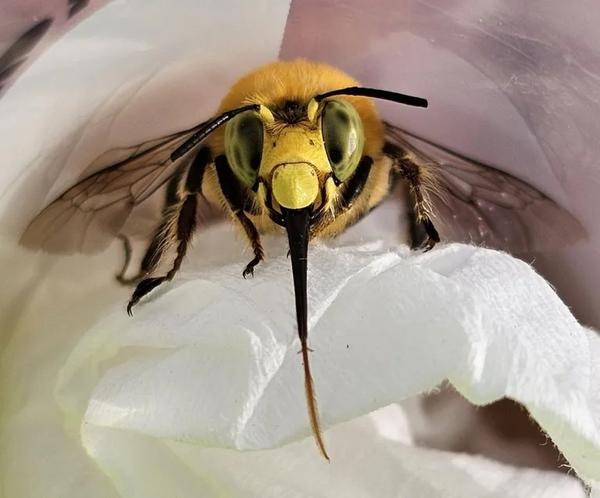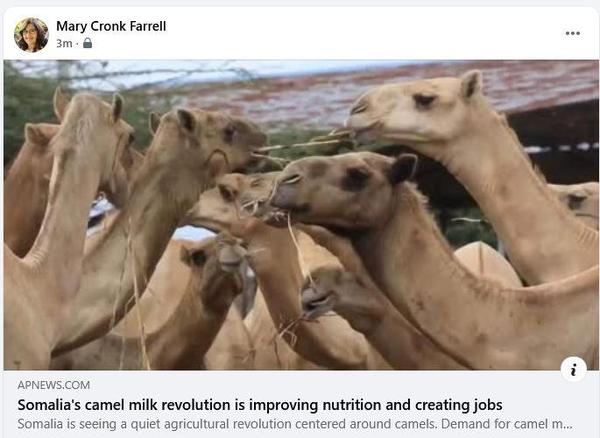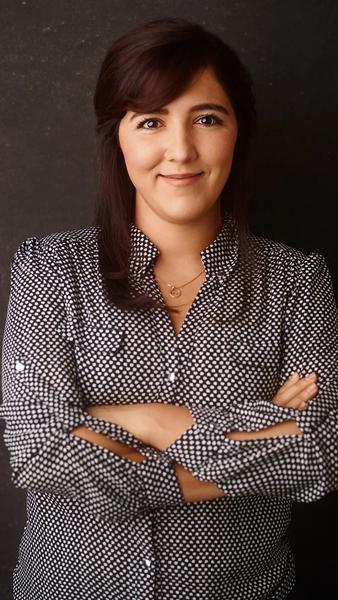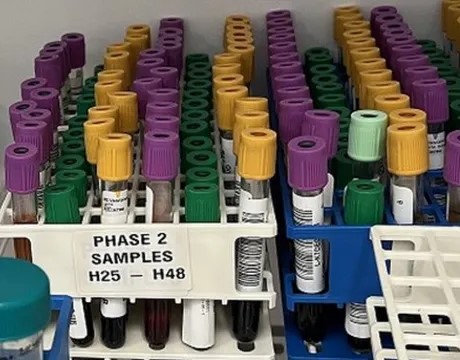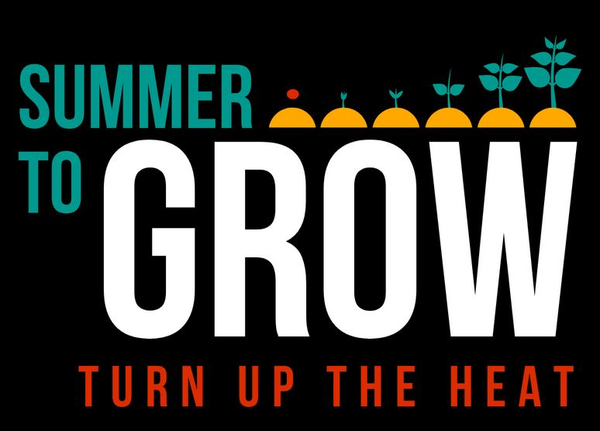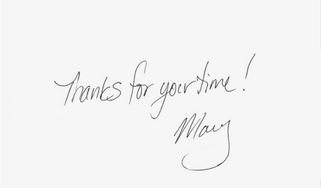August 8, 2025 Hello , This week, I'm departing from history to share with you some good in the world today. Honestly, I've been having a hard time with all the devastating things happening in the US and abroad. I'm starting a local group for support and to move into action that goes beyond protesting. More about that in the News and Links section below. To keep up my spirits, I learned about how volunteers in Washington State are collecting bees for study and found one rare species that has not been seen alive here in more than one hundred
years! Also, how camel milk could improve the economy in Somalia and an exciting new opportunity to improve women's health. If men can get over the "yuck" factor.
More than two dozen bee species, rare and new to Washington State, have been documented in the first year of compiling the Washington Bee Atlas, which is part of the broader Pacific Northwest Bumble Bee Atlas that
monitors bumblebee activity in Oregon, Washington and Idaho. The anthophora crotchii, a charismatic and rare digger bee previously only known from a small population near the Tri-Cities, WA, was collected in two other counties in the state. One of many species that live in the ground, digger bees, also known as ground bees and often
referred to as mining bees, are unsung heroes in the world of pollinators who also aerate soil.
Anthophora crotchii, photo Washington State Department of Agriculture. Robust, hairy bees, with visibly protruding faces, the anthophora crotchii "buzz" is often a high-pitched whine, as they hover and feed on flowers. Solitary, independent insect with excellent eyesight and a strong sense of
smell, they cover wide areas to pollinate plants. Female digger bees dig intricate underground nests, using their jaws to loosen soil and create tunnels with cells for laying eggs. In 2024, 67 Washington Bee Atlas volunteers collected over 17,000 specimens on more than 600 host plants.
The project has identified at least 26 new or rare species in the state, with many of the collected bees yet to be identified. One bee found in Yakima County had not been recorded in Washington since 1917. Most bee collecting is done by volunteers trained to collect and pin museum-quality specimens and record the location and host plant where the bee was collected. Eventually, all specimens not used for education and outreach will reside in the Washington State University entomology museum.
Rich News For A Poor Country
No country
has more camels than Somalia. And no animal is more important to Somali life and culture. Camel milk contains nutrients like magnesium, vitamins B12, C, D, and A, iron, and
zinc, while also being low in lactose. It has been a crucial nutritional staple during the famine Somalia has suffered for the last 25 years. A copyrighted story by the
Associated Press reports on efforts to modernize the ancient production methods of camel milk that could revolutionize and redefine Somali farming. To see the full story,
including great video of camels, click the image below and be patient during a brief commercial which helps pay the reporters of stories like this.
With the opportunity and means to modernize camel farming, camel milk could make a big splash in Somalia's economy.
Overcoming the "Yuck" Factor in Women's Health Science
Early detection is one of the most important factors in treating almost any medical condition, yet a lot of people don't go to the doctor until they have
serious symptoms. In medical school, Sara Naseri gave a lot of thought to how doctors might test people blood more regularly in noninvasive ways. "One day it hit me," Naseri said. "Half of the world bleeds every month. Why has nobody used this?” On any given day, about 800
million people around the world are on their period. And yet, there has been little to no research on the diagnostic utility of menstrual blood, one more indicator of the
gender health gap, which leaves women’s health needs under-researched and inadequately addressed.
Dr Sara Naseri developed the Q-Pad A1cTest for collection menstrual blood samples. Naseri developed a device that looks like a regular menstrual pad but doubles as a stealthy health detective. The Q-Pad A1c Test has been approved by the FDA. “Our goal is to give people the tools they need to take control of their health,” Naseri explains.
Menstrual blood could prove to be a game-changer in diagnosing one of the most common gynecological conditions, endometriosis. You probably know someone with this extremely painful condition, as one of out of every ten women and girls suffer from endometriosis, tissue that normally lines the uterus grows on the outside of other organs in the pelvic cavity. Diagnosis can take up to 12 years and can only be confirmed through surgery. Menstrual blood can be analyzed in a lab for biomarkers that could shed light on health conditions like endometriosis, thyroid health (TSH), average blood sugar level for diabetes and pre-diabetes management (HbA1c), inflammation (CRP), ovarian reserve (AMH), and other fertility and perimenopause hormones (FSH, LH).
Menstrual blood samples from Qvin Lab. Imagine, the Q-Pad could make the Pap smear obsolete! But there are societal taboos and resistance to over come. One scientist struggled to find a lab partner who could get over the "yuck" factor.
"Labs will test saliva, urine, or stool samples but there's just nothing for menstrual blood," says Theblood co-founder Miriam Santer.
She had male physicians say they could not ask their patients to donate samples. "[But when] we [put a call out on] social media," Santer said, "we got 6,000 people in our registry. Obviously, they got beyond the yuck factor." One day, a writer like me focusing on brave women in history will write about Sara Naseri and Miriam Santer!
Like my article today? Forward this email to share with family and friends.
Sources https://www.yalescientific.org/2025/03/profile-sara-naseri/
Summer 2025 is heating up—and so is the fight for our communities and our democracy. As Trump and the far right double down on attacks—from
slashing Medicaid to targeting immigrant families—the stakes keep rising. But so does public outrage. Showing Up for Racial Justice (SURJ) is meeting the moment with community gatherings across the country so folks can grounded, get clear on how we got here – and get organized for the next step of our work to stop the attacks on our democracy and our immigrant neighbors.
Find a meeting near you at Mobilize.US.
If not SURJ, there are many other organizations planning next steps. It's clear that protests will not be enough to stop the Republican Administration. It will take all of us working together to create the world we want to live in, a world of compassion, safety and democracy. The moment to step up is now. I'll be back with my
regularly scheduled programming next week!
Follow me on social media
This newsletter is a reader-supported publication. To support my work, consider becoming a paid subscriber.
Read
a great book? Have a burning question? Let me know. If you know someone who might enjoy my newsletter or books, please forward this e-mail. I will never spam you or sell your email address, you can unsubscribe anytime at the link below. To find out more about my books, how I help students, teachers, librarians and writers visit my website at www.MaryCronkFarrell.com. Contact me at MaryCronkFarrell@gmail.com. Click here to subscribe to this newsletter. |
|
|

